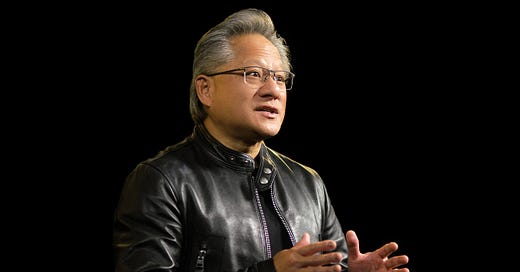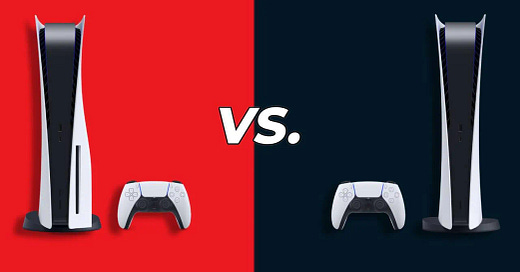
'ChatGPT is the iPhone moment for Artificial Intelligence,' says Nvidia CEO Jensen Huang
The Nvidia CEO is right about the future of AI
ChatGPT and services like it have been making a lot of headlines recently, mostly around the services being misused by companies like CNET. But it’s not all doom and gloom, especially if you ask Nvidia CEO Jensen Huang.
The head executive behind some of the best GPUs gave a lecture at Berkeley, where a student asked for his opinion on the new AI technology. In his response, Jensen was optimistic about the technology, calling it a “very, very big deal,” calling it essentially the “iPhone of artificial intelligence”. He explained its democratization of computing technology makes things like programming accessible to people without years of training or experience.
The CEO also compared the technology to the invention of Javascript shortly after the introduction of web browsers, and how that resulted in a flood of new applications. Nvidia has talked about this kind of thing before, primarily when promoting new graphics cards like the RTX 4080, which gives users the kind of computing horsepower previously reserved for huge companies with supercomputers.
Of course, this isn’t too surprising given Nvidia’s keen focus on AI over the last decade or so. After all, one of the company’s headline features for its recent GPUs is DLSS, which in itself is a form of AI. The technology, which can be found even in affordable hardware like the RTX 4070 Ti, uses an AI algorithm powered by Tensor Cores to upscale lower resolution images to a higher res, boosting performance, sometimes exponentially.
Only time will tell if this does result in certain technologies being more accessible or if it ends up a tool only the largest corporations can access. But with how powerful the best gaming PCs are getting these days, it won’t be too long before consumers are able to take advantage of AI-turbocharged applications like ChatGPT in a big way.
The new age of computing
The biggest names in computing have, at least in some form, been working AI solutions into more or less every product released over the last few years. Google Assistant, Amazon Alexa and even Apple’s Siri all work by using the same kind of machine learning tech as ChatGPT, the difference is the scale.
ChatGPT was essentially trained by using a huge swath of data to be able to generate things like art, poetry and even articles. The only real thing holding it back from taking over every industry on the planet is its inability to generate new ideas. As amazing as this technology is, it’s only just a tool, and isn’t even a “true” AI.
What’s really holding the tech from reaching that point is the sheer amount of compute power required to train even a relatively minor model like ChatGPT. In an essay for TechMonitor, Ryan Morrison reported that even if the GPUs that power AI models like this get way more powerful, the interconnects that let multiple GPUs work together are far too slow for the technology to become a true AI.
Because it may take you just a few seconds to type in a prompt into ChatGPT and have it spit out an answer, but in order for the program to get to that point it requires days, weeks or even months to train the AI to do that.
We are years away from these kinds of tools replacing programmers, writers and artists in any meaningful way. But, as a tool AI has untold potential for good. The ability for the technology to help people with disabilities is one of the areas that isn’t being talked about enough, for instance.
Realistically, we’re still in the early days when it comes to AI, and only time will tell if we reach the point of a true AI within our lifetimes. One thing’s for sure, though: the technology isn’t going anywhere. It’s been here for years already and is only going to grow and diversify from here. And honestly I share Jensen Huang’s optimism for the technology. It’s time to seize the means of production anyways, now we potentially have the ability to do so with a graphics card.













